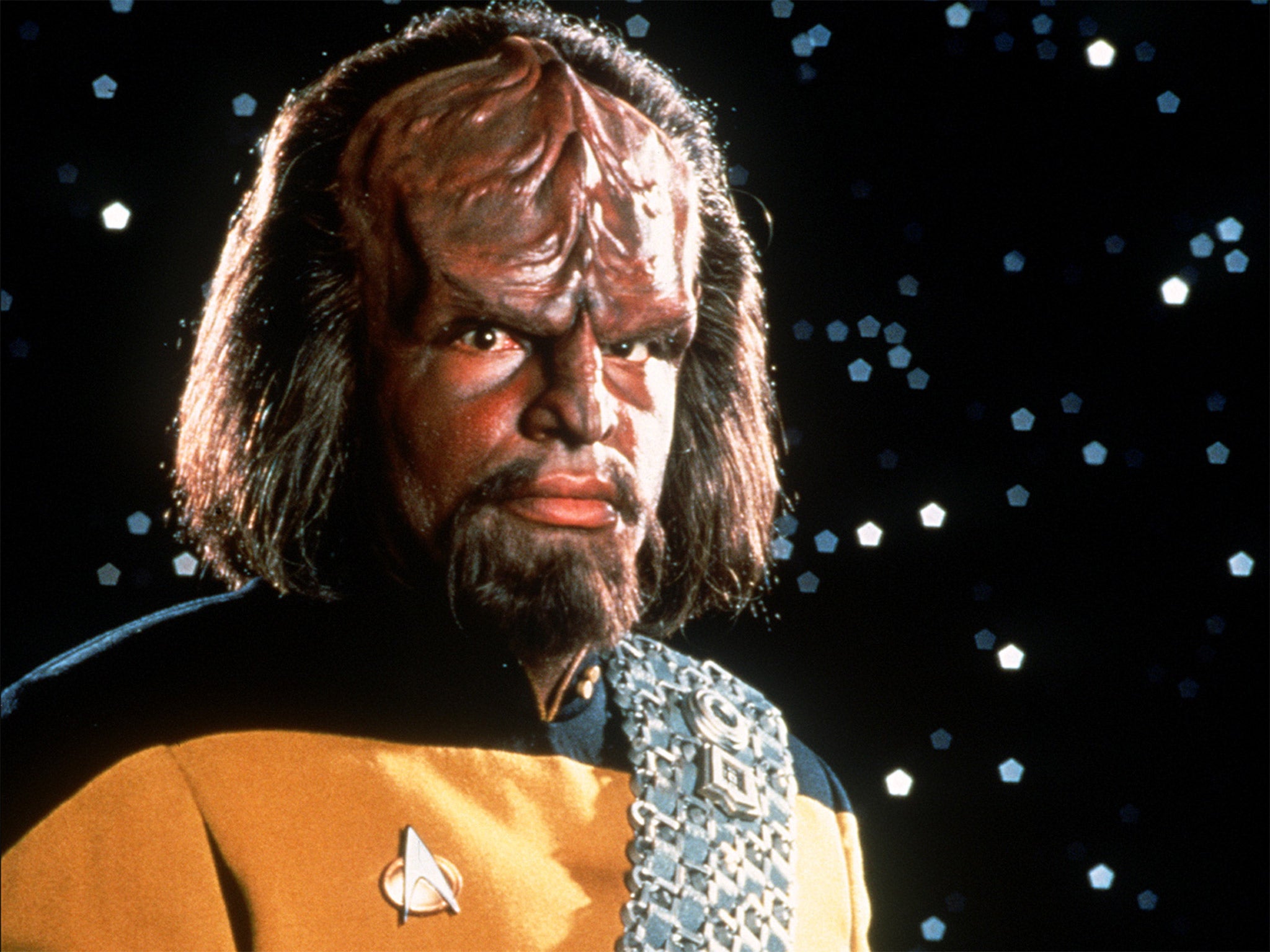Speaking in Game of Thrones: How one man created the Dothraki language from scratch
Anna Hart learns a few 'conlang' chat-up lines and explores the mad world of made-up languages

Your support helps us to tell the story
From reproductive rights to climate change to Big Tech, The Independent is on the ground when the story is developing. Whether it's investigating the financials of Elon Musk's pro-Trump PAC or producing our latest documentary, 'The A Word', which shines a light on the American women fighting for reproductive rights, we know how important it is to parse out the facts from the messaging.
At such a critical moment in US history, we need reporters on the ground. Your donation allows us to keep sending journalists to speak to both sides of the story.
The Independent is trusted by Americans across the entire political spectrum. And unlike many other quality news outlets, we choose not to lock Americans out of our reporting and analysis with paywalls. We believe quality journalism should be available to everyone, paid for by those who can afford it.
Your support makes all the difference.David J Peterson was teaching English Composition at Fullerton College, California, when he heard that HBO was accepting applications to develop Dothraki, the language of horse-mounted warriors, for Game of Thrones. Using the handful of words and phrases in George R R Martin's fantasy-novel series as a starting point, Peterson spent the next four years developing Dothraki grammar and writing a dictionary of around 3,400 words.
During filming, cast members, such as Emilia Clarke, are sent scripts and audio recordings by Peterson as they prep for the subtitled scenes. It was Peterson who decided that there would be no Dothraki word for "thank you" and that there would be seven different words for "striking someone with a sword". Among them: hlizifikh, a wild but powerful strike; hrakkarikh, a quick and accurate strike; and gezrikh, a decoy strike.
Dothraki is far and away Peterson's best-known "conlang" (constructed language – call Klingon, Elvish or Na'vi a "made-up" or "pretend" language and you risk the wrath of "conlangers" the world over) but he caught the bug after being introduced to Esperanto during his masters in linguistics at Berkeley, and now has a string of languages under his belt – or at least on his website. As well as High Valyrian, the language of the nobility in Game of Thrones, Peterson developed Castithan and Irathient for the sci-fi show Defiance and a number of others – Zhyler, Njaama, Sidaan – for the sheer pleasure of it.
"Language creation is very much an artistic process, albeit one that requires a lot of technical knowledge," says Peterson. Conlanging is nothing new; the "Lingua Ignota", created by the 12th-century abbess St Hildegard of Bingen for mystical purposes, is considered to be the first entirely artificial language. Languages have also been created for philosophical and political purposes, such as Laadan, an avowedly feminist, experimental conlang created by Suzette Haden Elgin in 1982 to see if a language specifically tailored towards expressing a female perspective would shape culture.
In the 19th and 20th centuries, international auxiliary languages such as Interlingua and Esperanto were developed in the hope of breaking down language barriers across the globe. Today there's a vibrant conlanging community online; but it hasn't always been thus. "It's fair to say that there was no conlang community before the internet," Peterson says. "It was rare for one conlanger to meet another in their lifetimes, because it's rare for two conlangers to live within 100 miles of each other. And since conlanging has always been regarded coolly by outsiders, it wouldn't come up in conversation. But when the internet entered people's homes, conlangers managed to find each other on UseNet."
Today, skilled conlangers such as Paul Frommer, (a linguistics professor at USC Marshall School of Business who created Na'vi, the language spoken on Pandora in the 2009 James Cameron movie Avatar), Matt Pearson, (a linguistics professor at Reed College, Oregon, who created Thhtmaa for NBC's Dark Skies) and Peterson are in ever-increasing demand in the entertainment industry. The reason, as Peterson sees it, is that they recognise they can't fob off viewers with a few mouthfuls of inconsistent gibberish any longer. "Films and TV shows are now analysed by millions of fans the world over," Peterson says. "Every detail is scrutinised by amateurs and experts, and the debate is all over the internet right away. Unlike movie props, language can't be faked. To create an authentic-sounding language, one needs to employ an authentic methodology."
So how do you go about inventing a language? With Webster's Unabridged English Dictionary, responds Peterson. Initially it's a process of deciding how what you know about a fictional society will affect their vocabulary. Today most conlangers take a naturalistic approach to language development – that is, one that "replicates the quirks and idiosyncrasies of natural language", as Peterson puts it.
"Languages evolve over hundreds of years, and the artistry of naturalistic language creation comes from simulating this, emulating that evolution, often by analysing how old linguistic forms evolved. To create Dothraki's grammar, I was sensitive to the realities of Dothraki life: the fact that they're less technologically advanced than the societies that surround them; the fact that they keep mostly to the steppes and eschew 'civilised' life; the fact that they apparently have weddings, and all that was entailed in that wedding scene as described by George R R Martin," he says. "All these factors determined the lexical make-up of the Dothraki language, because a language's vocabulary will contain exactly those words it ought, and will lack those it ought not have."

Entertainment industry conlangs have come a long way since Klingon was first uttered during Star Trek: The Motion Picture in 1979, having been devised by the actor James Doohan (Scotty) purely to sound "alien". Klingon was subsequently developed by the linguist Marc Okrand into a full-fledged language, and The Klingon Dictionary was published in 1984. According to the most recent stats, Klingon is still the third-largest conlang spoken (after Interlingua and Esperanto), Okrand's Klingon Dictionary has sold more than 300,000 copies, but it is estimated that a few thousand people know a little Klingon, several hundred can read and write it, and perhaps a few dozen can speak it fluently. But the success of Game of Thrones means that Dothraki is widely expected to take over as the conlang of choice.

Watch Apple TV+ free for 7 days
New subscribers only. £8.99/mo. after free trial. Plan auto-renews until cancelled

Watch Apple TV+ free for 7 days
New subscribers only. £8.99/mo. after free trial. Plan auto-renews until cancelled
"I'm not sure how many Dothraki speakers there are at present, but I'm always surprised when I hear of a new one – or meet one at a convention," Peterson says. "I used to know everyone that was interested in the language. Now they're too numerous to estimate. I imagine if people keep writing in it, it will eventually have enough tokens to work with Google Translate."
Unsurprisingly, Peterson is regularly contacted by Thrones fans requesting translations so they can propose in Dothraki, get a linguistically accurate tattoo, or even train their dog in Dothraki. "By far the creepiest thing that's happened, though, is that last June a user on Reddit submitted a photo explaining that after she rejected a guy, he wrote "Moon of my life" in Dothraki on his wall – in blood – and sent a pic of it to her," Peterson says with a shudder. "That's by far the weirdest thing I've ever seen. The dog commands were fun, though!"
But now for the useful stuff – what about a Dothraki chat-up line? "Jahak anhoon neaka sekke; anha ray vos arthas k'athlajari. Vosma anha azhak jahakes yeraan, hajinaan m'athzheanazar yeri ray atthas anna. That is, 'My braid is very long; I have never fallen in battle. But I will give you my braid, because your beauty has laid me low'." No Trekkie has ever been this smooth.
'Game of Thrones: The Complete Fourth Season' is out on DVD on Monday
Join our commenting forum
Join thought-provoking conversations, follow other Independent readers and see their replies
Comments